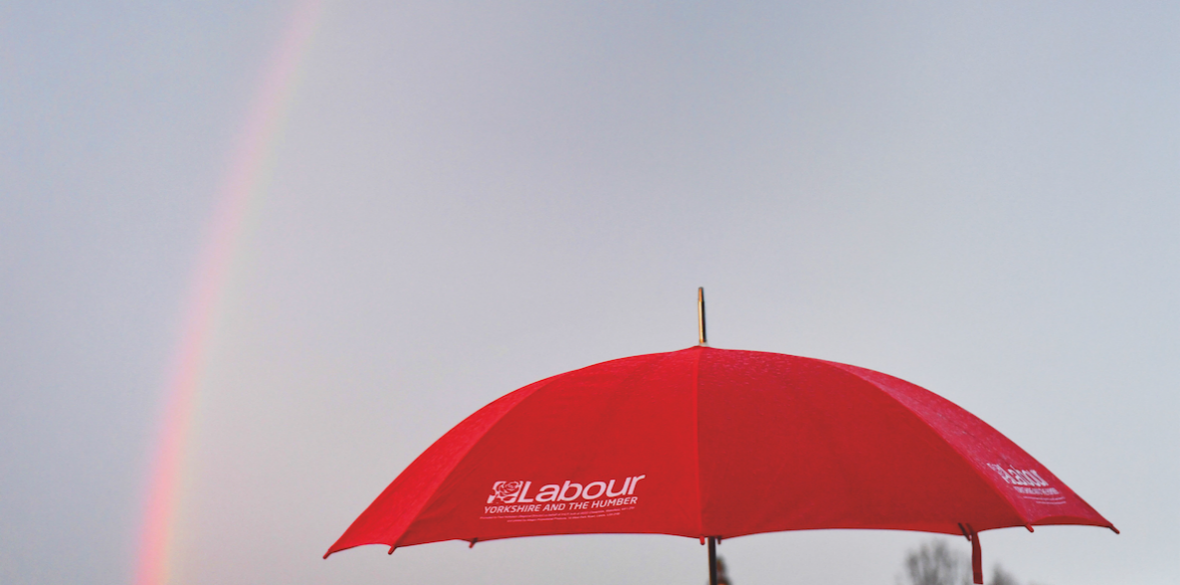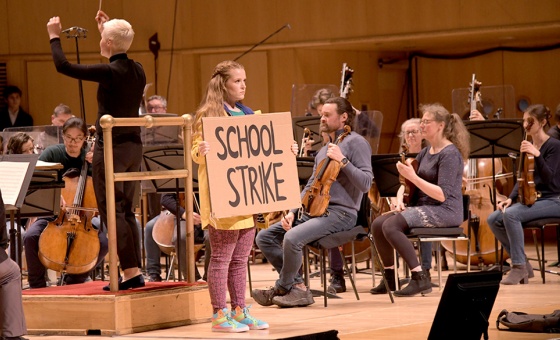This is the last article you can read this month
You can read more article this month
You can read more articles this month
Sorry your limit is up for this month
Reset on:
Please help support the Morning Star by subscribing here
IT IS a difficult time for the left in the Labour Party, in Scotland as everywhere else. There is no need, for the readers of this paper, to list the examples of back sliding mendacity from Keir Starmer and acolytes, nor the Labour leadership’s collusion in distorting or abandoning democratic practice in order to ensure absolute loyalty to our dear leader from prospective parliamentary candidates. Scotland has not been exempted from this.
We can neither ignore it, nor adopt the approach of the ultra-left which seems to have come straight out of Blackadder Goes Forth — a mad assault on enemy positions over open ground in the certainty of mass slaughter.
Perhaps those advocating such an approach do so on the assumption that a new workers’ party is about to bring salvation to abandoned socialists, so that expelled Campaign Group members could represent “a real socialist party” for a year before losing their seats in the 2024 election.
If so, then surely they recognise that the likelihood of that scenario has at the very least, been postponed. The decision by Unite last month to reject disaffiliation from the Labour Party overwhelmingly is a good indication of where the organised working class in England, Scotland and Wales is.
Although whether that vote would have been quite so overwhelming after the recent national policy forum, where Unite withheld support for the final document, is a moot point.
Add to that the local government elections last May. The Trade Union Socialist Coalition (Tusc), put forward 254 candidates in 247 wards across 65 local authorities in England, plus two mayoral candidates.
Their results ranged from a high of 231 votes (10.5 per cent) in the Newton Abbot ward to a low of 18 votes (5 per cent) in the Mansfield ward.
What is to be done? The socialist left in Scottish Labour (and Britain for that matter) needs to build a series of alliances inside and beyond the Labour Party.
Inside the Labour Party, organisations like the Fabian Society and Compass, which, even if they do not share a socialist political perspective, do share not only a commitment to Labour Party democracy, but also to some policy positions in significant areas.
Andrew Harrop, the general secretary of the Fabian Society, went public on his opposition to Starmer’s announcement on the Tories’ two-child benefit limit: “I’m not going to pretend I’m happy with Labour’s new line on the 2-child limit. It is a vicious policy that seeds child deprivation…”
And of course, we need to work locally and nationally with trade unions, especially affiliated trade unions, trade unions councils and the STUC — formally or informally.
Trade unions share our concern about the lack of working-class representation, in parliaments and councils and the voices for progressive change that such representation would bring about.
Party democracy is not, however, the only area where we need to reach out.
Public ownership and privatisation
The actions around party democracy are essentially defensive. The Scottish Labour left also needs to go onto the offensive and this needs alliances too.
Mercedes Villalba MSP has led the way in her campaign on land justice, as set out in the Morning Star on July 4. She is preparing a consultation on a Land Justice Bill that seeks to limit the number of acres that rich landowners are allowed to hold, hence controlling private ownership.
In her proposals publicly owned community trusts and co-operatives would have the option of taking over available land. This kind of campaign attracts support from a wide variety of groups across constitutional and intra-party divides.
So does the campaign led by Unison seeking to eliminate or marginalise the private-sector contribution to the national care service proposals being advanced by the Scottish government as described by Stephen Low in the Morning Star on June 5.
The Scottish Labour left should have a high-profile role in supporting the defence of the public sector here.
Public-sector funding and fiscal redistribution
The Scottish Labour left should also play a part in the STUC’s Scotland Demands Better campaign supporting the argument that the Scottish government could deliver investment for public services by using their taxation powers to raise significant sums of money.
Again, this fits with defence of public against the private interests of corporate capital. As in the other campaigns identified, participation in this initiative could play an important part in building alliances with supporters of radical independence who recognise the limitations of the Scottish government in exercising the powers that it already has, to challenge the power of corporate capital.
The constitution
YouGov’s latest opinion poll based on data collected at the end of June shows respondents unhappy with SNP First Minister Humza Yousaf: 50 per cent said he was doing a bad job.
Support for independence was at 37 per cent. Those who would vote for the Union increased to 46 per cent. Add to those figures the various SNP policy failures, the police investigations into SNP finances and the flight of the Westminster SNP MPs (eight now) and we need not bother to ask whether the Labour leadership, Scottish or British, will be in any way inclined to look at building radical alliances with independence supporters, for example by accepting that there needs to be a legal route to calling an independence referendum that includes a third option.
However, the current situation might also provide opportunities for the left. Elements of the independence left, some of whom believe independence is off the table for some time, are interested in having conversations on what the left in Scotland as a whole, can do.
Those conversations are still in their infancy, but initiatives such as Scotland’s Not For Sale an event aimed at bringing the Scottish left together to challenge privatisation and outsourcing, will help build confidence in co-operation.
The silence has ended
Whatever happens in the Scottish Labour Party, we can be sure of one thing: the silence in the face of the Labour right-wing onslaught has ended.
In contrast to Scottish Labour leader Anas Sarwar ambiguous stance, a range of Labour MSPs, most of whom are associated with the Scottish Labour Campaign for Socialism (CfS), Monica Lennon, Carol Mochan, Paul Sweeney and Mercedes Villalba went public in their criticism of the Labour leadership’s craven position on the Tories’ two-child benefit limit.
In this they were given full support of CfS, recently emerged from its AGM better organised and more combative than ever.
The 100th anniversary of the founding of the Independent Labour Party is a propitious time to renew the fight for socialism in the Scottish Labour Party.











